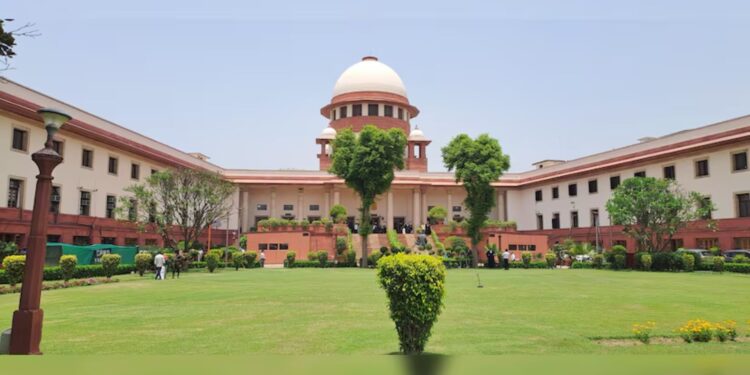On Friday, the Supreme Court decided to address a significant legal issue concerning the validity of arrests when the grounds for detention are not provided to the accused. This comes as the Court considered a plea challenging the arrest of Mihir Rajesh Shah in connection with the high-profile BMW hit-and-run case in Worli, in which a 45-year-old was killed.
The Bombay High Court had previously dismissed Shah’s petition to quash his arrest despite acknowledging that he had not been informed of the grounds for his detention at the time of the arrest. The High Court reasoned that Shah was aware of the reasons for his arrest since he had allegedly fled the accident scene and attempted to conceal evidence by removing the number plate from the vehicle. The High Court thus concluded that the absence of formal grounds for arrest did not invalidate the detention, noting that the accused knew the arrest’s basis.
This decision contrasts with previous Supreme Court rulings, such as the Pankaj Bansal and Prabir Purkayastha cases, where the Court held that authorities must provide written grounds for arrest in specific situations, such as money laundering or cases under the Unlawful Activities (Prevention) Act (UAPA). These rulings emphasize the importance of informing individuals of the reasons for their arrest to uphold their constitutional rights under Article 22, which guarantees protection against arbitrary detention.
Despite the High Court’s decision, the Supreme Court, led by Justices BR Gavai and PS Narasimha, declined to interfere with Shah’s arrest, agreeing that there were no grounds for overturning the High Court’s findings. However, the Supreme Court also noted the broader constitutional concerns at play, particularly regarding the interpretation of Article 22(1) of the Constitution, which mandates that arrested individuals must be informed of the grounds of arrest as soon as possible and given the right to consult with a lawyer.
While agreeing with the High Court’s conclusions, the Supreme Court acknowledged that the case raised important legal questions regarding the constitutional safeguards against arbitrary arrest and detention. “While we do not find any apparent error in the High Court’s judgment, it is appropriate to address the larger legal question involved,” the Court stated, indicating that it would issue notice to examine the legal implications more closely.
This case could potentially have wide-ranging implications for arrest procedures in India, particularly on the rights of individuals during the arrest process. The Court’s decision to entertain the matter further suggests that it may issue a landmark ruling clarifying the legal standards on when failure to provide grounds for arrest can lead to the invalidation of detention.
Shah’s legal team, led by Senior Advocate Rebecca John, included advocates Jay Kumar Bhardwaj, Priya Darshini Arora, Siddharth Sharma, Disha Bajaj, Rishi Bhuta, and Ishika Chauhan. The matter is now scheduled for further examination by the Supreme Court, with implications that could reshape legal standards on arrests and constitutional rights.

















